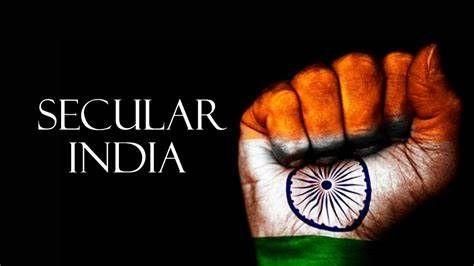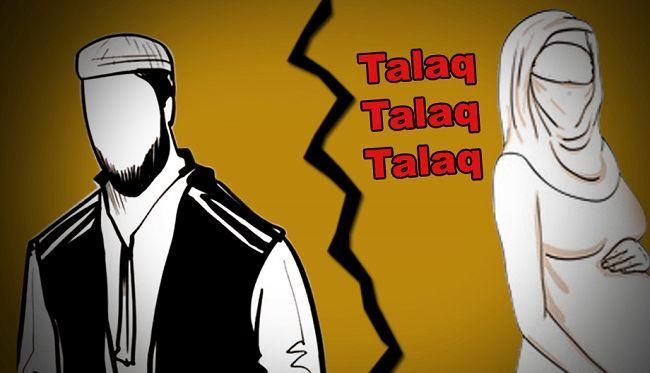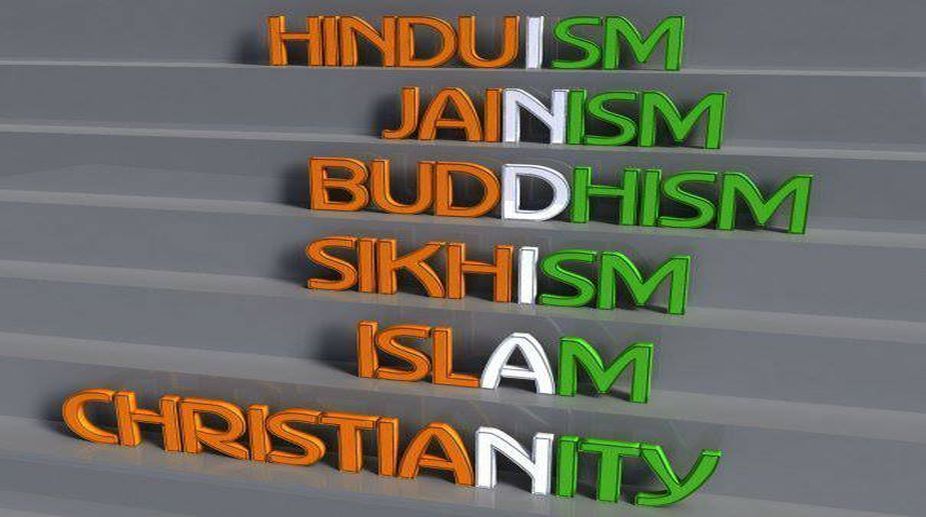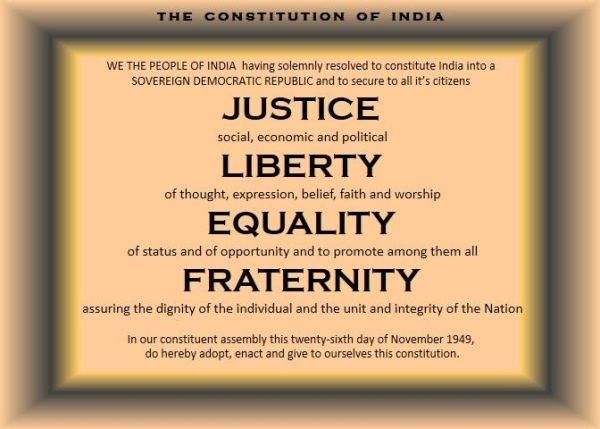Secularism In India
Sep 16, 2019 • 115 views
Introduction:
India is a multi-religious, multi-lingual, multi-racial, and multi-cultural society. Spiritual minorities represent roughly one fifth of India’s population, out of that Muslims account for fourteen. No society will prosper or be at peace if it’s one fifth of the population feels vulnerable, deprived, neglected and unwanted.
Secularism is the underlying and first way of thinking that restricts all styles of inter-religious supremacy. Religion has a lot of some imbued issues. In religions like Hinduism, a few segments are tenaciously separated. As an example, Dalits are barred from coming into Hindu temples. In some part Hindu girls cannot enter temples. Once faith is unionised, it is often appropriated by its most conservative faction, that doesn't tolerate any dissent.

Secular India Source: News on Screen
Secularism in India:
More than sixty years once Independence, there has been no national accord concerning what Indian secularism would entail. The Supreme Court finding spells out secularism as divorcing state and faith. the decision additionally exposes many contradictions.
Firstly, we've separate Hindu, Muslim and Christian family laws. Going by what the court has aforementioned, if secularism means that divorcing state and faith, then we cannot be having separate family laws for various religions. In this sense in a very secular democratic country, one cannot have laws, that are derived from spiritual teachings.
The second contradiction arises from the reservation system. Going by the Supreme Court finding, together with faith, caste and creed should even be kept far from election campaigns. The reservation system, however, allocates a precise range of seats for SCs, STs and OBCs. This goes against the Supreme Court’s interpretation of secularism.
How is secularism in Republic of India different?
Contrasted with France or United States of America, Republic of India could be a substantially more different nation with numerous layers of personality. In India’s cultural context, the division between the personal and public sphere, on that French secularism is predicated on, is completely different.
By taking faith far from politics, the court is casting off a very important tool within the hand of minority teams to confirm their rights are not damaged upon. Democracy is concerning illustration, in a very multi-religious society like the Republic of India, it'll be tough for a minority cluster to own a political voice if the state and faith are separated.
Features of Western thought of secularism
State and faith encompass a separate sphere of its own, with freelance jurisdiction i.e. Mutual exclusion of state and faith, principled distance of state from faith and no illegitimate intrusion of faith within the state.
The state cannot aid any spiritual establishments.
State cannot hinder the activities of spiritual communities as long as they are within the broad limits setup by the law of the land.

Indian Secularism Source: The Statesman
Differences in Indian secularism
Indian secularism opposed oppression of Dalits and girls at intervals Hinduism.
Indian secularism deals not solely with spiritual freedom of people however additionally with spiritual freedom of minority communities.
Indian secularism has created area for and is compatible with the concept of state supported spiritual reform.
The Indian state may interact with religion negatively to oppose spiritual tyranny.
Thus, the Indian Constitution grants all spiritual minorities, the rights to determine and maintain their own instructional establishments, which can receive help from the state.

Constitution of India Source: India Times
Secularism as philosophy of the constitution
Secular perspective or perspective of impartiality towards all faith is secured by the constitution beneath many provisions. (Article 25 to 28).
Firstly, there shall be no ‘state religion’ in the Republic of India. The state can neither establish a faith nor confer any special patronage upon any explicit religion. It follows from this, that-
· The state won't compel any national to pay taxes for the promotion or maintenance of any explicit faith or spiritual establishment, mentioned below Article-27 of the elemental rights.
· No spiritual instruction shall be provided in any institution altogether provided by state funds.
· Even though spiritual instruction is completely illegal in state-owned instructional establishments, in different denominational establishments (as recognised by or receiving aid from the state) it's not absolutely prohibited however it should not be obligatory upon individuals of different religions while not their consent (Article 28).
Secondly, one and all is warranted the liberty of conscience and therefore the freedom to profess, practise and propagated his own faith, subject only-
· To restrictions obligatory by the state within the interests of public order, morality and health. So, that the liberty of faith might not be abused to commit crimes or anti-social acts. For example- to commit the practise of infanticide, etc.
· To rules or restrictions created by the state regarding any economic, financial, political or different secular activity which can be related to spiritual practise, however, do not really concerned to the liberty of conscience.
· To measure for social reform and for throwing open of Hindu spiritual establishments of a public character to all or any categories and sections of Hindus.
Subject to higher than limitations, an individual in the Republic of India will have the right not exclusively to engage any religious congregation to rehearse the observances devoted by such religion and to lecture its perspectives to others.(Article 25).

Shah Bano Case Source: Awaaz Nation
Shah Bano Case:
In 1978, the Shah Bano case united the secularism dialog with a prerequisite for uniform common code in the Republic of India to the front line.
Shah Bano was a 62-year-old Muslim Indian who was unmarried by her husband of forty-four years in 1978. Indian Muslim Personal Law needed her husband to pay no support payment. Shah Bano sued for normal maintenance payments below Section 125 of the Criminal Procedure Code, 1978.
Shah Bano won her case yet appeals to the highest court. The Shah Bano ruling directly triggered an issue and mass demonstrations by Muslim men. The Islamic priesthood and therefore the Muslim Personal Law Board of Republic of India, argued against the ruling.
Shortly once the Supreme Court’s ruling, the Indian government with Rajiv Gandhi as Prime Minister, enacted a new law that deprived all Muslim girls, and solely Muslim girls, of the right of maintenance certain to girls of Hindu, Christian, Parsees, Jews and different religions.
Indian Muslims think about the new 1986 law, that specifically absolves them from upkeeping installment to ex because of their confidence, as common people regards Muslim men's profound rights and perceives that they're socially totally unique in relation to Indian men and women of various religions.Muslim opponents argue that any conceive to introduce Uniform Civil Code, that's equal laws for each individual freelance of his or her faith, would mirror majoritarian Hindu sensibilities and ideals.
Islamic feminists:

Islamic Feminism Symbol Source: Pinterest
Islamic Feminists Movement in India claim that the problem with Muslim Personal Law in India is a historic and in progress interpretation of Quran. The feminists claim religious text grants Muslim girls rights that in practice are habitually denied to them by male Muslim ulama in Republic of India. Like several different faiths, even in Islam there are ‘patriarchal’ interpretations of the spiritual book, Quran. The impact of those interpretations on the illiterate Muslim Indian lots is abusive. The feminists demand that they need a right to read the religious text for themselves and interpret it in a very woman-friendly method. Republic of India has no legal mechanism to just accept or enforce the stress of those Islamic feminists over spiritual law.
Women’s rights:
Some spiritual rights granted by Indian construct of secularism, that are claimed as abusive against Indian girls, embrace child wedding, polygamy, unequal inheritance rights of girls and men, illegal unilateral divorce rights of Muslim man that don't seem to be allowed to a Muslim girl, and subjective nature of sharia courts, jamaats, dar-ul quzat and non-secular qazis who control over Islamic family law matters.
Criticism of Indian secularism
Sometimes, Indian secularism is additionally criticized for being anti-religious, however that's not really true, because it is against institutionalised spiritual domination. It is additionally aforementioned that it promotes Minoritism, however it solely advocates minority rights as long as those rights shield their elementary interests. It is additionally criticized for being Interventionist, which implies that secularism is powerful, and it interferes overly with the spiritual freedom of communities.
It was additionally criticized as a not possible project by different nations, however Republic of India claimed this false. In fact, migration is increasing thanks to globalization and it's making state of affairs wherever Indian model is incredibly abundant desired.


